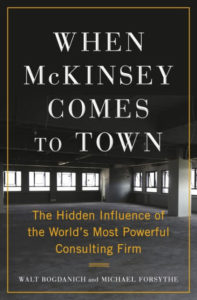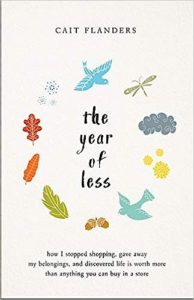This week’s selected media: July 23, 2023: Pro-slavery thought in the old South; When McKinsey Comes to Town; The Year of Less; John Locke
This week I read
Pro-slavery thought in the old South, by William Sumner Jenkins: You and I live in an economic system that hurts and kills people near and far, now and in the future, for our wants and needs. We feel we are good people, yet we do things we believe are wrong; we buy fast fashion, fly, drive SUVs, and so on. To maintain our positive self-perceptions and sleep comfortably at night, we rationalize and justify. Anyone not benefiting from the system would identify our rationalizations and justifications as self-serving bunk, but we do benefit.

How do we sound to impartial observers not benefiting from our behavior? We sound like slaveholders did. This book from 1935 quotes many slaveholders’ rationalizations and justifications. The mechanism for cruelty was different, since we don’t crack whips today, but is the system any less cruel when the harm comes in the form of birth defects or cancer that you can’t see?
I copied a lot of the pro-slavery arguments into a file which I will post here soon. It’s a lot like The Ruling Race by podcast guest James Oakes.
When McKinsey Comes to Town: The Hidden Influence of the World’s Most Powerful Consulting Firm: by Walt Bogdanich and Michael Forsythe: I learned of McKinsey in business school. It seemed all my classmates knew of them, but I hadn’t, even in my mid-thirties. They recruited me and I heard I got great reviews internally, but I went to business school to improve as an entrepreneur. Still, some great friends worked there.
I’d been meaning to read this book since I’d heard of it. It’s fascinating. It’s hard to imagine how the authors got so much information, though reading their New York Times articles reveals some middle steps. This book overlaps significantly with King Leopold’s Ghost and Secret History of the American Empire. It’s about unchecked power and corruption, also imperialism, though not by one nation militarily over another.

The Year of Less: How I Stopped Shopping, Gave Away My Belongings, and Discovered Life Is Worth More Than Anything You Can Buy in a Store, by Cait Flanders: I found the book browsing at the library. Cait Flanders had overcome debt, alcohol, and overspending but didn’t understand why she spent or on what. She challenged herself to buy only food and a few other things from a list. She tracked how she did and felt.

The book recounts her exiting one culture for another. She learned about herself but I was surprised she didn’t point out how companies and our culture is filling her environment with ads that addict her. I read it partly for ideas for my book. She doesn’t tell people what to do. She takes responsibility. She shares about her family growing up, her relationships, her addiction and partying.
I’ve been browsing John Locke’s Two Treatises on Government to understand his views on property and how we can come to own it. I’m comparing it with Adam Smith’s Wealth of Nations. I’m amazed at what I found, in particular, his exception to something from nature becoming your property from labor. It can become yours “where there is enough, and as good, left in common for others’.” He clarifies this view from many angles, including taking a cup of water from a river not being a problem since it doesn’t change the river.
Today, we take so much from rivers, they don’t reach the ocean. I believe Locke would disagree that our actions should be allowed by government, or that a government that allows them loses its legitimacy.
I haven’t exhaustively searched, but I bet most sustainable cultures retained a belief like “don’t take the last fruit or animal.” By contrast, it looks like Adam Smith dropped that restriction and just allowed any labor to claim anything from nature.

Read my weekly newsletter

On initiative, leadership, the environment, and burpees